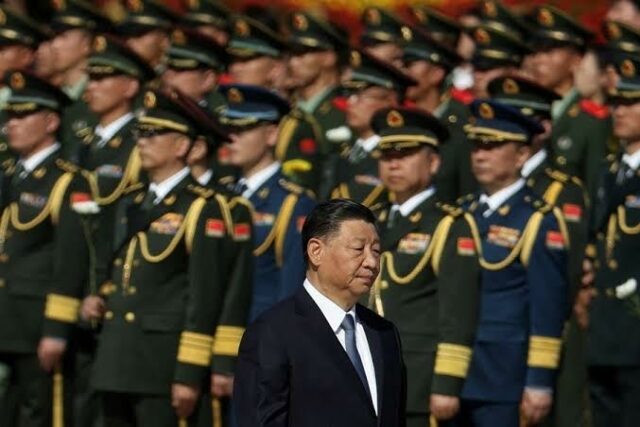NEW DELHI: China’s powerful anti-corruption watchdog, the Central Commission for Discipline Inspection (CCDI), began its third plenum today (January 8) that will lay out the work priorities for the New Year: meaning after an unprecedented 45 senior officials were targeted for alleged corrupt activities last year, this year could see even more so called “Tigers” or officials of deputy minister and above under investigation.
The CCDI itself gave a preview of what to expect last December when it warned of the “enduring existence of corruption within China’s CCP among various cadres and officials”. It said it would broaden its scrutiny over extravagant government spending, notably during the Spring Festival and Chinese New Year celebrations.
The underlying motive is political, argues Dr Bhim Subba, Assistant Professor and China Scholar at Hyderabad University, to position the Communist Party “as a virtuous moral organisation—a vanguard of the Chinese people”.
Devendra Kumar, Associate Fellow at Shiv Nadar University in Noida, says there’s been an uptick in the number of senior officials being investigated … and has risen significantly in the period leading to the 20th Party Congress in October 2023. In other words, expect more of the same this year also.
To be fair, he says, “the anti-corruption campaign has always been a priority during Xi’s tenures since 2013. In addition, the number of retired officials being investigated has increased in recent years in contrast to Xi’s first term and new regulations have taken effect in December 2023 aiming at punishing bribe givers, indicating that the ambit of the anti-corruption campaign is increasing.”
So retired officials no longer have immunity for misdeeds committed during their years of service. Among last year’s 45 officials for instance, 27 had retired but were still targeted and the campaign has broadened to cover the worlds of finance, food, healthcare and semiconductors.
The punishment for bribery cases have become more stringent, a point underscored by state-run media. Global Times claimed in a report that over 400,000 officials at all levels of the Communist Party were punished last year, a staggering figure if true.
Even the PLA has not been spared although it has its own anti-corruption watchdog under the Central Military Commission headed by President Xi.
According to Devendra Kumar,”Along with nine senior officials being removed from the NPC in December-end, the PLA Military Court Chief Cheng Dong Fang was also removed in September 2023, reflecting the endurance of corruption even at the higher ranks of the PLA after almost ten years of rigorous anti-corruption campaigns.”
Now a report by Bloomberg based on U.S. assessment cites several examples of corruption in the military, such as missiles filled with water instead of fuel and vast fields of missile silos in western China with lids that don’t function in a way that would allow the missiles to launch effectively. Corruption in China’s Rocket Force and throughout the nation’s defence industrial base is so extensive that U.S. officials now believe Xi is less likely to contemplate major military action in the coming years than would otherwise have been the case, the report adds.
The anti-corruption purge probably resonates with the public and reinforces Xi’s power but it also deepens the insecurities of party members, making them hesitant to take decisions as challenges rise.
The economy is struggling after COVID-19, with lots of young people out of work. The housing market and how confident people feel about spending money have dropped steeply. At the same time, China’s debt is getting bigger, and foreign investors are looking elsewhere to put their money.
Research Associate at StratNewsGlobal, A keen observer of #China and Foreign Affairs. Writer, Weibo Trends, Analyst.
Twitter: @resham_sng





